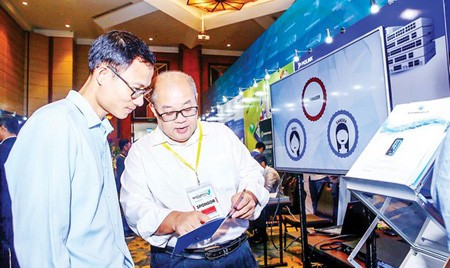
Accordingly, the MIC report revealed that in January 2020, there were 283 cyber attacks against Vietnamese information systems, a decrease of 11 percent and 17 percent compared to December 2019 and January 2019, respectively.
In addition, the number of Vietnamese IP addresses in zombie networks this January was only 432,162, a reduction of 57.69 percent and 59.32 percent compared to December 2019 and January 2019, correspondingly.
Deputy General Director of CMC Cyber Security Co. Ha The Phuong commented that phishing campaigns nowadays mostly take advantage of global hot news or trends to trick curious people. When these specific Internet users click a link in hope of finding more information, malware then infects their devices and damages their data.
Mr. Phuong cited the latest attack of Emotet, which used news and facts about the Covid-19 outbreak, in Japan. These kinds of malware can both steal users’ sensitive information and turn them into zombies to continuously perform malicious tasks to other devices.
Similarly, Kaspersky lately warned Vietnamese people of another attack of cyber criminals using files with the extensions of pdf, mp4 or docx and attractive names of instruction on protecting against Covid-19. However, when opening these files, users unintentionally activate certain Trojan and Worm to interfere in activities of the device’s operation system.
Cyber experts, therefore, suggest that Internet users need to be cautious about accessing news addresses and should only click formal links of reliable organizations, along with avoiding sharing untrustworthy information onto social networks.
According to Bkav Cyber Security Co., in 2019, financial damage caused by computer viruses to the Vietnamese reached VND20,892 billion (approx. US$899 million), way surpassing the 2018 amount of VND14,900 billion ($641 million).
This company also predicted that in 2020, advanced persistent threat (APT) attacks will be more sophisticated, with Fileless malware becoming the prominent trend. Other potential threats include those faking software and standard programs using DLL Side-Loading technology to sneak malware past anti-virus scanners.
Furthermore, Internet of Things devices like Router, Wifi, monitoring cameras, and terminal devices will be the focus of cyber criminals. Attacks to steal money from bank accounts will increase significantly while fake news will appear more often in the cyber space, posing serious challenges to both the community and the government.
























